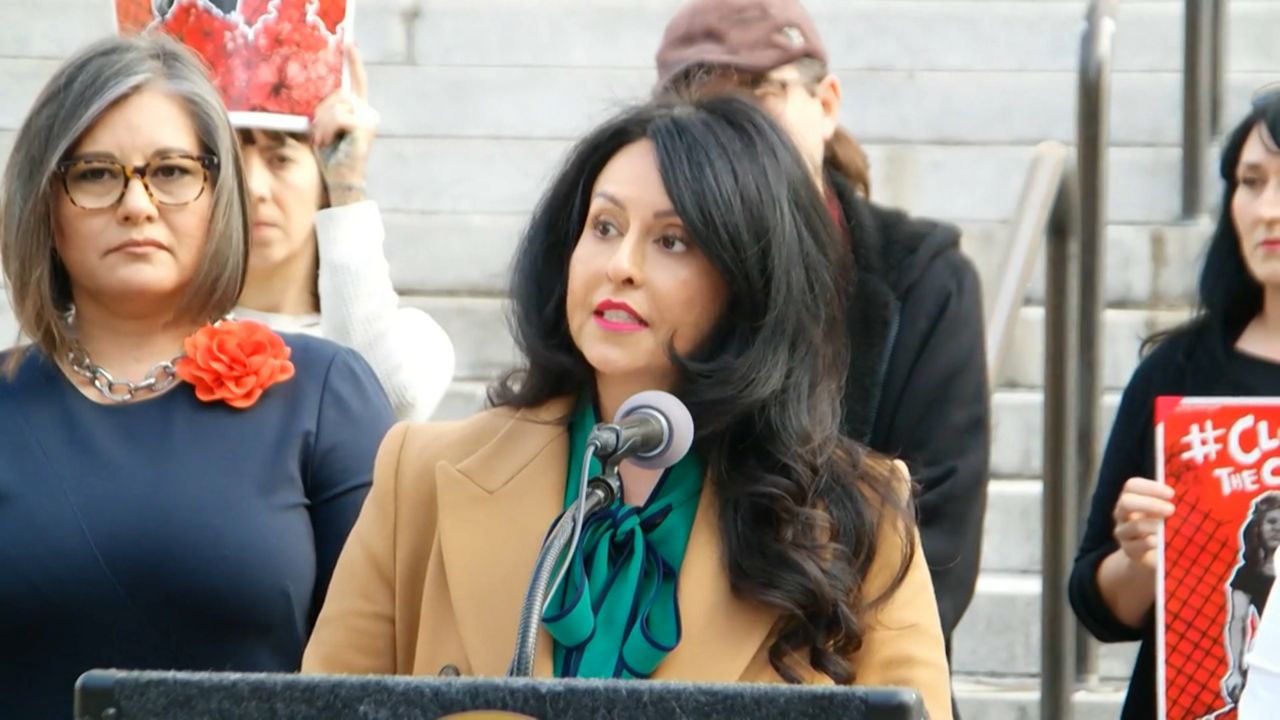LOS ANGELES (CNS) — City Council President Nury Martinez said Tuesday that Los Angeles "cannot reasonably move forward" with a draft map proposed by the council's Redistricting Commission, and introduced a motion to create an Ad Hoc Redistricting Committee to lead the council's role in the process.
"It's clear that too many voices across the city have yet to be heard and we have an immovable deadline," Martinez said. "We cannot reasonably move forward with a map that raises concerns for so many marginalized communities when this will be so influential in the lives of all Angelenos for the next decade. If we're looking to build a stronger, more equitable Los Angeles, we need a map that reflects that."
On Thursday, the City Council Redistricting Commission voted to finalize its recommendations for a draft map of revised council district boundaries, but did not designate which district would be District 2 and which would be District 4. The City Council members from those two districts, Paul Krekorian and Nithya Raman, seconded Martinez' motion to create an Ad Hoc Redistricting Commission.
The draft map moved forward by the 21-member commission had already been criticized by Raman and Krekorian for drastically redefining their districts, and under the recommendations, one of them would end up with entirely new constituents in the west San Fernando Valley.
Raman represents parts of Silver Lake, Los Feliz, Hollywood Hills, Hancock Park and Sherman Oaks, among other neighborhoods. Krekorian represents East San Fernando Valley neighborhoods, including North Hollywood, Studio City and Sun Valley.
The draft map sent to the council would have either Krekorian or Raman representing a district that encompasses parts of both their current districts — the Hollywood Hills, North Hollywood, Valley Glen and part of Los Feliz. The other would represent an entirely new district with areas of Canoga Park, Winnetka, Reseda and Lake Balboa in the west San Fernando Valley.
Martinez on Friday blasted the draft map. "As it stands now drastic changes were made to the map that have confused and alienated thousands and threatened to widen the divides between neighborhoods," she said.
"While some areas kept their assets and neighborhoods whole, poverty was concentrated in other communities that have already suffered from disinvestment and neglect for generations."
Martinez said the council would work to ensure the map "does right by all communities and Angelenos."
The commission finalized its recommendations on Thursday evening.
"Last night, a sharply divided Redistricting Commission approved an embarrassingly bad proposal for new council districts that ignores the input of the public and disenfranchises half a million people," Krekorian said Friday.
"I am confident that the council will respect the will of the people instead of the dealmaking of political insiders and reject this unnecessarily divisive and controversial proposal."
Krekorian added that some commissioners "insisted on disrupting the San Fernando Valley with dramatic and unnecessary wholesale changes that effectively cancel last year's election results in two districts."
Raman, who was elected last year, echoed Martinez and Krekorian, saying the City Council "has an opportunity to restore the community's faith in the redistricting process when the map comes before us."
"I'm gratified that so many Angelenos were activated to speak up to defend their neighborhoods and their rights as voters. The public record is clear: This map has unacceptable inequities and needs to be changed," Raman added Friday.
In a statement to news sources on Friday, the commission's chair, Fred Ali, defended the map, saying the commission "is very proud to send the map adopted at last night's meeting to the City Council for its review. Our work has been informed by census data, the federal Voting Rights Act and countless hours of public testimony."
Ali said the commission conducted the process with the participation of more than 12,000 Los Angeles residents who spoke or submitted written testimony.
"From the outset, the commission made a commitment to transparency and equity. The assertion that this map concentrates poverty in certain communities is patently false. In the final adoption of the map, the commission took great care to ensure that traditionally disadvantaged districts included critical economic assets," Ali said, adding that it wasn't the commission's job "to protect elected officials, their jobs or their political futures."
The Redistricting Commission uses data from the U.S. Census to update the city's districts, with each City Council member getting about 260,000 people to represent. The council will have the chance to make changes to the map before adopting final borders for the 15 districts to go into effect on Jan. 1.



